Filter by

MicroRNAs and Other Non-Coding RNAs in Inflammation
The book serves as a comprehensive resource for scientists and clinicians studying the role of non-coding RNAs in inflammation (viral infections, wound inflammation), human inflammatory diseases (i.e. rheumatoid arthritis, Crohn’s disease, diabetes) and innate immunity. It provides a universal reference work comprising both basic and specialized information. Given that ncRNAs represent new th…
- Edition
- 1
- ISBN/ISSN
- 978-3-319-13688-2
- Collation
- X, 237
- Series Title
- Progress in Inflammation Research
- Call Number
- -

Metabonomics and Gut Microbiota in Nutrition and Disease
This book provides a comprehensive overview of metabonomics and gut microbiota research from molecular analysis to population-based global health considerations. The topics include the discussion of the applications in relation to metabonomics and gut microbiota in nutritional research, in health and disease and a review of future therapeutical, nutraceutical and clinical applications. It also …
- Edition
- 1
- ISBN/ISSN
- 978-1-4471-6538-5
- Collation
- XVI, 375
- Series Title
- Molecular and Integrative Toxicology
- Call Number
- -
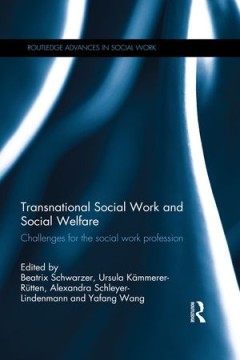
Transnational Social Work and Social Welfare: Challenges for the Social Work …
The underlying frame of social work is the nation state, and it is from within the state that welfare strategies and social policies are devised and implemented. However, post-colonialism, globalisation, migration and the associated implications for human rights, social justice and social welfare policies contest the idea of a clearly defined space for social work and present new challenges for…
- Edition
- -
- ISBN/ISSN
- 9781317431183
- Collation
- -
- Series Title
- -
- Call Number
- 362.1 TRA t
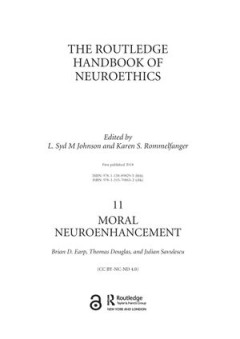
11 Moral Neuroenhancement
In recent years, philosophers, neuroethicists, and others have become preoccupied with “moral enhancement.” Very roughly, this refers to the deliberate moral improvement of an individual’s character, motives, or behavior. In one sense, such enhancement could be seen as “nothing new at all” (Wiseman, 2016, 4) or as something philosophically mundane: as G. Owen Schaefer (2015) has state…
- Edition
- -
- ISBN/ISSN
- 9781138898295
- Collation
- -
- Series Title
- -
- Call Number
- -
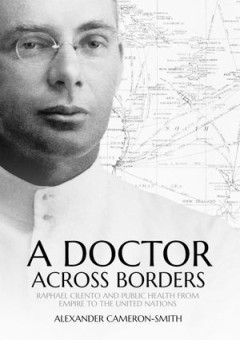
A Doctor Across Borders : Raphael Cilento and public health from empire to th…
In his day, Raphael Cilento was one of the most prominent and controversial figures in Australian medicine. As a senior medical officer in the Commonwealth and Queensland governments, he was an active participant in public health reform during the inter-war years and is best known for his vocal engagement with public discourse on the relationship between hygiene, race and Australian nationhood.…
- Edition
- -
- ISBN/ISSN
- 9781760462642
- Collation
- -
- Series Title
- -
- Call Number
- -

Policy, People, and the New Professional
Engaging with the acclaimed American sociologist Eliot Freidson's argument about professionalism's 'third logic' (a viable alternative to bureaucracy and consumerism), Dutch, British, French and German contributors to this volume bring together three political and academic debates rarely tackled jointly: professionalism, change, and policy, in the context of the increasing marketization and bur…
- Edition
- -
- ISBN/ISSN
- 9789053568859
- Collation
- -
- Series Title
- -
- Call Number
- 301 KNI p
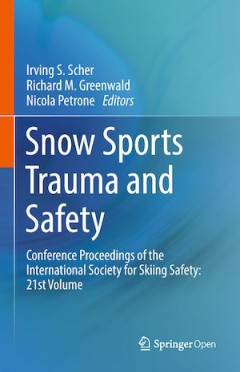
Snow Sports Trauma and Safety: Conference Proceedings of the International So…
This book covers the latest in snow sport epidemiology, snow sport injuries and treatment, and biomechanical/mechanical engineering related to snow sports injuries (mechanisms of injury, injury prevention by equipment design, injury prevention by design of resort features, and more). It brings together a collection of papers from the International Congress on Ski Trauma and Safety (the biennal …
- Edition
- -
- ISBN/ISSN
- 9783319527550
- Collation
- -
- Series Title
- -
- Call Number
- -
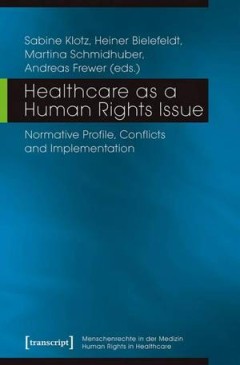
Healthcare as a Human Rights Issue : Normative Profile, Conflicts and Impleme…
This book deals with various facets of the human right to health: its normative profile as a universal right, current political and legal conflicts and contextualized implementation in different healthcare systems. The authors come from different countries and disciplines—law, political science, ethics, medicine etc.—and bring together a broad variety of academic and practical perspectives.…
- Edition
- -
- ISBN/ISSN
- 978-3-8394-4054-4
- Collation
- -
- Series Title
- -
- Call Number
- 362.1 HEA
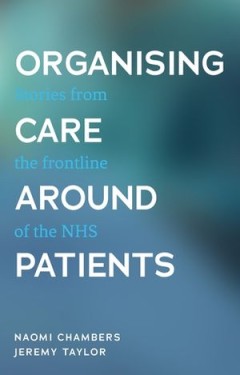
Organising care around patients Stories from the frontline of the NHS
Healthcare aims to be patient-centred but a large gap remains between the fine words and the reality. Care often feels designed for the convenience of the organisations that deliver it, and not enough around patients and their families, or even around the frontline staff who provide it. Why does this happen? What does it feel like? What can be done about it? This book stimulates reflection on t…
- Edition
- -
- ISBN/ISSN
- 9781526147448
- Collation
- -
- Series Title
- -
- Call Number
- -

Healthcare as a Human Rights Issue : Normative Profile, Conflicts and Impleme…
This book deals with various facets of the human right to health: its normative profile as a universal right, current political and legal conflicts and contextualized implementation in different healthcare systems. The authors come from different countries and disciplines—law, political science, ethics, medicine etc.—and bring together a broad variety of academic and practical perspectives.…
- Edition
- -
- ISBN/ISSN
- 978-3-8394-4054-4
- Collation
- -
- Series Title
- -
- Call Number
- 362.1 HEA
 Computer Science, Information & General Works
Computer Science, Information & General Works  Philosophy & Psychology
Philosophy & Psychology  Religion
Religion  Social Sciences
Social Sciences  Language
Language  Pure Science
Pure Science  Applied Sciences
Applied Sciences  Art & Recreation
Art & Recreation  Literature
Literature  History & Geography
History & Geography